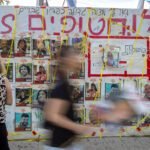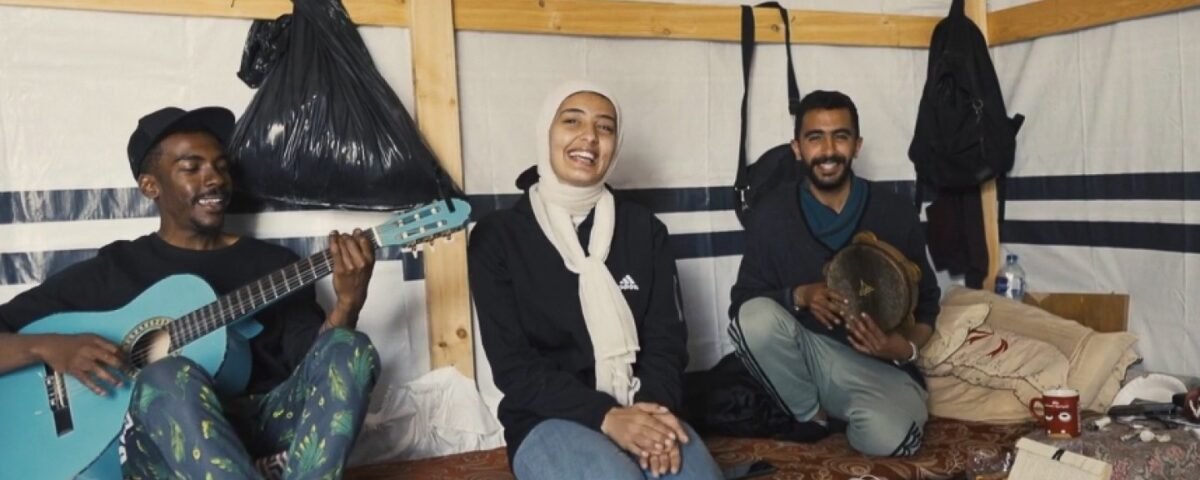


‘Den of Thieves 2: Pantera’ Review: Gerard Butler and O’Shea Jackson Jr. in a Numbing Sequel
January 13, 2025


Israel and Hamas Agree to Ceasefire Deal and Plan to Free Hostages; Details Still in Flux, Says Israel
January 16, 2025The anthology feature, produced by Rashid Masharawi and executive produced by Michael Moore, showcases 22 shorts by filmmakers documenting life in Gaza.
From Ground Zero
A stirring account of resilience.
A handful of haunting images connect the 22 short films in From Ground Zero, Palestine’s poignant Academy Award submission: the eerie hum of drones patrolling Gaza’s airspace; bodies trapped beneath piles of rubble dotting once bustling neighborhoods; and clusters of tents housing people forced into itinerancy. Startling in their familiarity, these scenes have become a shorthand for an ongoing nightmare. Anyone following Israel’s unrelenting and escalating bombardment of Gaza over the last 16 months — whether through the eyes of journalists like Bisan Owda (who won an Emmy for her reporting) or civilians asking for support to escape the besieged enclave — will recognize those images.
The three- to six-minute snapshots in this film were commissioned by Masharawi, who asked Gazan artists to pitch projects showcasing day-to-day life in the Palestinian territory. Not confined to any genre, many of the shorts find strength and freedom in the collapsed boundaries between narrative and documentary. They experiment with form, using first person, almost diaristic testimonies or stop motion animation to tell stories of death, displacement and survival.
In addition to familiar scenes of destruction (which bear some resemblance to the haunting images in Oksana Karpovych’s chilling Ukraine war doc Intercepted), the shorts also share the intimate perspective forced onto those navigating conflict zones. Rare is the aerial view or long shot.
Scale must be intuited as the camera stays close to the protagonists in heartbreaking shorts like Muhammad Al Sharif’s Sorry Cinema, in which a filmmaker in need of firewood resorts to using his clapperboard; and Ahmed Al Danaf’s School Day, where a young boy journeys to his teacher’s grave and studies in the presence of academic spirits. Damo Nidal’s Everything Is Fine trails a comedian who wants to shower before his stand-up set. His trek involves queuing in long lines for water only for his bath to be interrupted by bombs rattling the earth.
Nidal’s film wields humor with admirable deftness. Laughter — whether from the small audience gathered for this comedy show or the children in Hana Eleiwa’s No — signals lives lived in defiance of destructive forces.
Rabab Khamis’ Recycling is one of the more affecting takes on this issue. It opens with a woman filling a jerrycan at a water station. She carries the heavy load back to her home, a makeshift flat in a battered building. There’s no dialogue in this short, which documents how the woman stretches a container of water. She drinks from it before using some to bathe a small child and launder clothes. Drippings from the bath water and wash are collected from the ground so that they can be used for the toilet. The remainder goes to the plants, a small collection of thriving succulents. The woman works — with a quiet intensity — against a soundscape of children’s voices and whirring drones.
Reema Mahmoud’s Selfie begins with a shot of the Mediterranean Sea and ends with the filmmaker sending a letter in a bottle out into the water. The vast expanse is referenced throughout From Ground Zero — people bathe in the sea, frolic in the waves and go, when they can, to the beach for a moment of serenity.
In Out of Frame, by Neda’a Abu Hassnah, the artist Ranin Al Zeriei surveys the remainder of her destroyed studio. She talks about salvaged works including a print of a ship braving the waves. “In Gaza, the only horizon we have is the sea,” Al Zeriei says. “Without it, I don’t know what would become of us.”





